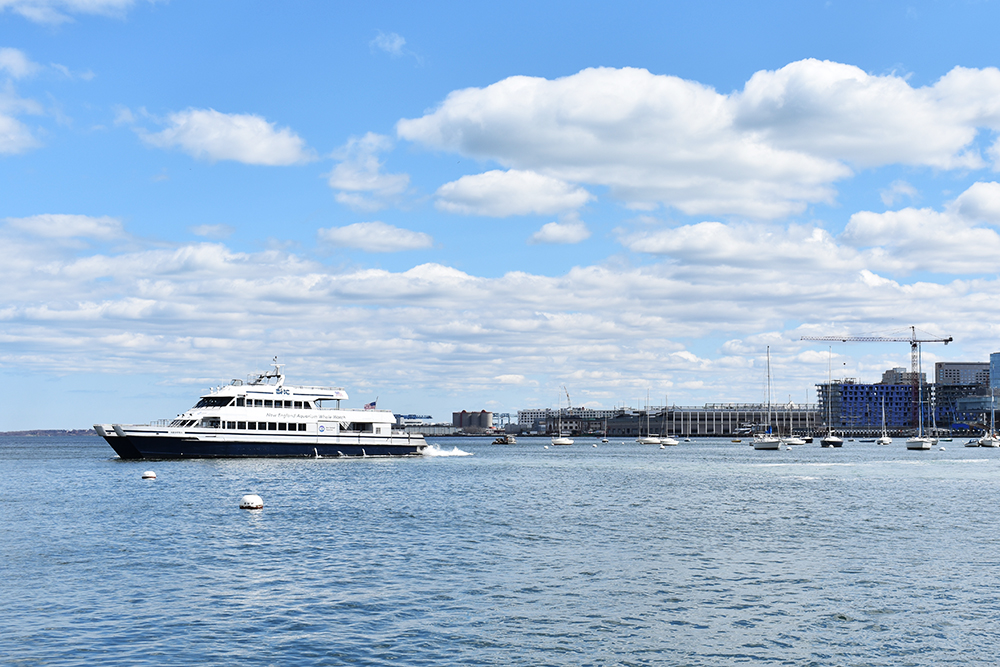
Boston will face challenges in fighting climate change, including projects that could cost an estimated $1–2.4 billion for the City, according to a report the University of Massachusetts Boston Sustainable Solutions Lab released Friday.
Sponsored by the Boston Green Ribbon Commission, an organization aiming to tackle climate change, the report provides suggestions on how Boston could fund climate-centered investments. A large chunk of the report addresses the feasibility of a Harbor-wide barrier that would protect the Boston Harbor from rising sea-levels.
David Levy, a professor in the College of Management at UMass Boston and lead author of the study, said Boston officials should consider making substantial investments because these funds would not only address climate change, but also other vital problems facing the city.
“If we do it right, there is an opportunity to transform the city and to improve its infrastructure and transportation, to address inequality in the city and stimulate economic development in some of the more vulnerable neighborhoods,” Levy said. “I think there is an opportunity to revitalize the city and reshape it.”
Levy said there isn’t one single financial solution to address climate change.
“We’re talking about layered funding as well as layered defenses from individual buildings to the districts,” Levy said. “The reports do address different levels from the large harbor barrier to district level things around East Boston, down to individual buildings where [it] is more likely to [be] individual companies investing and [that’s] where it’s important to have the metrics.”
Over the next several decades, the City will implement incremental investments to address the areas most at risk, like the Seaport, Levy said. Only after these regions are dealt with will the City begin to consider more risky projects, he said, such as his idea to create a harbor barrier.
The main concerns addressed in the report include potential damage from extreme precipitation, rising sea levels and storm surges.
Andrew Shalit, 54, of Brookline, said even though there is lack of funding, climate change should be the City’s top priority.
“There’s never enough money to go around,” Shalit said. “But I think that people who really look at the numbers — people who run companies and look at investments — know that climate change is a very serious issue and one that will affect the finances of every municipality, every state and every company in the world.”
Magdalena Ayed, founder and director of The Harborkeepers, an East Boston-based environmental advocacy organization, wrote in an email that everyone from Boston residents to governments officials must do their part to address the issue of climate change.
“The goal needs to be engaging all stakeholders from corporate businesses to governing officials to communities in creating a stronger sense of urgency and on taking more clear-cut actions,” Ayed wrote. “Sufficient financing structures that will help mitigation climate impacts will only happen when there is enough pressure from the masses as well as political and legislative circles to change them.”
Ayed wrote that the Commonwealth needs to fund more urban areas — individual locations with a focus on the “most vulnerable neighborhoods.”
“I see a focus from state funding on communities that [are] not as vulnerable and not as equitably served in terms of climate resilience planning and adaptation,” Ayed wrote.
The dangers of projected sea level increases were examined in Climate Ready Boston, a 2016 city initiative and report meant to develop resilient solutions for potential climate change situations in Boston.
Levy’s report and its estimated cost could undoubtedly change going forward, said Allston resident Peter Pursley.
“In the end, I hear these estimates of billions and billions of dollars and I say, ‘Well yeah that’s what we say now, but in five years, let’s see what we say,’” the 22-year-old said. “To me it’s a very pressing issue but at the same time, I don’t think enough is being done to fully understand the issue.”






















































































































